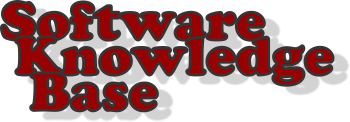If you’re trying to install one program that does one thing, and you download a free trial or a free tool, and then you see that three new programs have been added to your computer, you’ve been monetized. The program you downloaded, or the download portal you downloaded it from, added a wrapper program, which included offers, or free recommended programs, which were chosen not because you’re a potential user of what you were downloading, but because you were recognized as a potential target. Here’s the glossary that will help you decode the new world of software monetization.
BHOs: A Browser Helper Object is software that runs in Internet Explorer, usually a toolbar, that adds features, usually related to search, but adding features other areas is not unusual. BHOs add to Windows startup time, and to Internet Explorer’s startup time–run as few as possible. There aren’t any that are required for Internet Explorer to run.
In Firefox, the equivalent of a BHO would be Add-Ons and Plugins. In Google Chrome, they’re Extensions.
Browser Extensions: A generic term, that includes BHOs (in Internet Explorer), Extensions (in Google Chrome), Addons & Plugins (Firefox), and other add-in types in each browser.
Default Search Provider: All browsers can search from the address bar. Set the search provider to choose where these searches go. Most adware and spyware will change the default search provider in order to make money from your clicks on search results.
In-App Purchases: Program that’s free, but includes built-in purchasing options for related items. For a game, this could be power-ups or extra options. For an accounting program, additional report formats. For a video player, there could be content or subscriptions. Usually, the extra purchase is of a product, option, or service from the same publisher as the app or program.
Monetizer: A more general name for a wrapper program that suggests ‘offers’ during the download and installation of a downloaded program. More generically, anything that converts a free product or web site into a money maker, including ad servers for web sites.
Offers: Describes the extra products suggested by monetizers or wrappers during the installation of a downloaded program. Some always offer the same program, but many will look at the programs already installed on the target computer, and offer something not already installed.
Search Protection: Prevents changes in your default search provider. These are usually malware protecting itself, although the feature is also built into some antivirus products.
Shopping Helper: Usually a toolbar or other browser extension that intercepts your web and search traffic and offers lower prices, locally or online, or matching coupons. If it worked, it would be worth something–they’re universally worthless, and generally considered spyware, as they send search information back to a server in order to target products that pay a commission on a click-through purchase.
Toolbar: A toolbar adds an additional row of controls to a browser. These are totally optional (none are required to use the browser), and always add to startup time of Windows and the browser, and slow down page loading time. Run as few as possible. Toolbars running in Internet Explorer are generally also Browser Helper Objects.
URL Redirector: Software that takes a browser request to go to a web site, and sends it somewhere else. Some only redirect if the requested web address is not available; others send only searches to a preferred search site. Mostly spyware and adware, and never beneficial.
Wrapper: An installation program that downloads an app or program, and also suggests additional products to install as ‘offers.’ Selection of the products offered is frequently done at run-time, based on programs and configuration found on the downloader’s computer.
by Jerry Stern, Archivist, Software Knowledge Base, Tech, PC410.com

